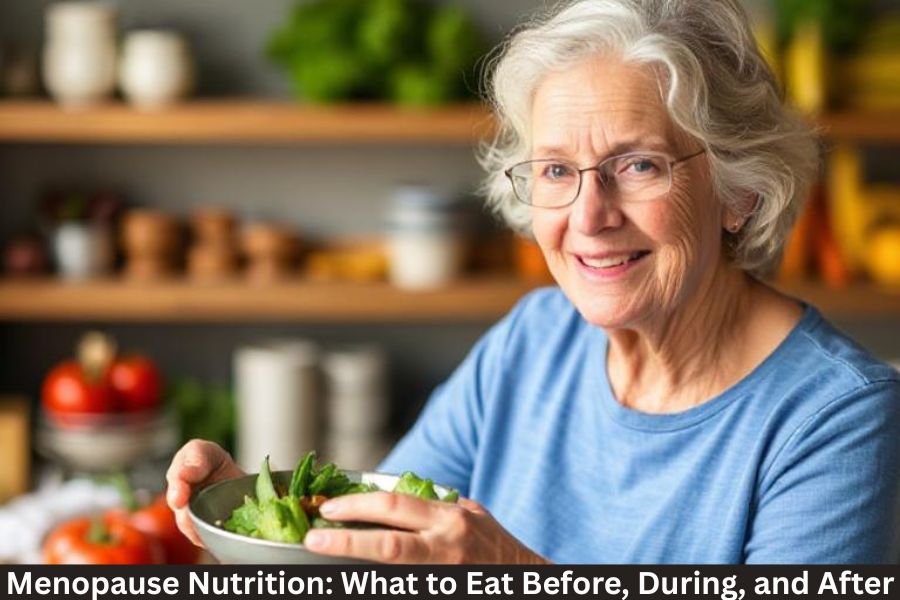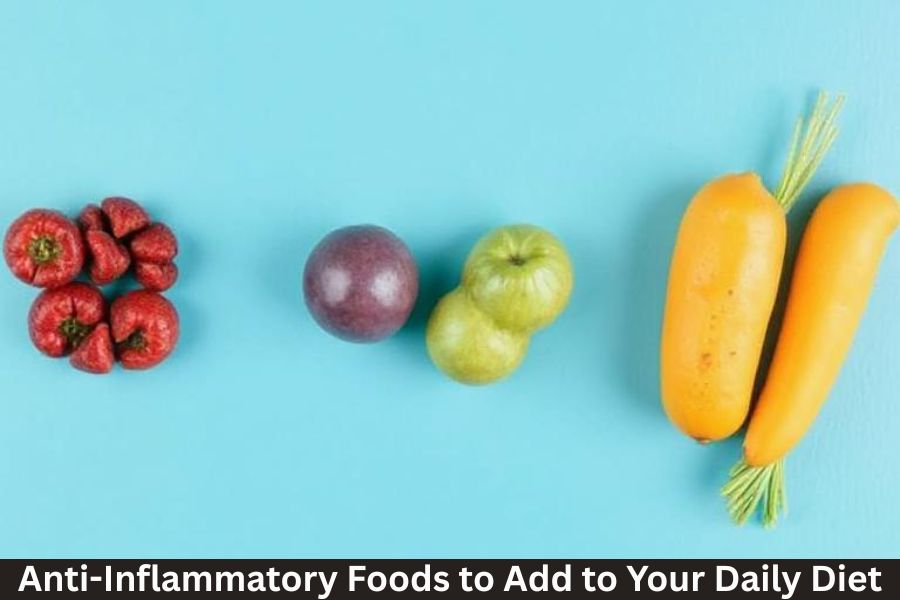Menopause marks a major transition in a woman’s life, often accompanied by hormonal shifts, mood changes, weight gain, and bone density concerns. While it’s a natural biological process, the symptoms can be disruptive. The good news? Nutrition plays a powerful role in managing menopausal symptoms and supporting your health before, during, and after this stage.
Whether you’re approaching menopause (perimenopause), experiencing it, or have already transitioned into postmenopause, this guide will show you what to eat to feel your best at every stage.
Understanding Menopause and Its Stages
Perimenopause
- Begins several years before menopause
- Hormone levels (especially estrogen) begin to fluctuate
- Symptoms: irregular periods, hot flashes, mood swings
Menopause
- Officially diagnosed after 12 months without a period
- Symptoms often peak: night sweats, vaginal dryness, sleep disturbances
Postmenopause
- The years after menopause
- Higher risk of osteoporosis, heart disease, and weight gain due to low estrogen
Why Nutrition Matters During Menopause
Declining estrogen levels affect:
- Bone density
- Cholesterol and heart health
- Metabolism and weight
- Mood and energy
- Skin elasticity and hydration
The right diet can ease symptoms, protect long-term health, and support hormonal balance.
Best Foods to Eat Before Menopause (Perimenopause)
1. Cruciferous Vegetables
- Examples: broccoli, cabbage, kale
- Contain indole-3-carbinol, which supports estrogen metabolism
2. Leafy Greens
- High in magnesium, B vitamins, and calcium for mood and bone health
3. Fatty Fish
- Rich in omega-3s to reduce inflammation and improve hormone production
4. Nuts and Seeds
- Flaxseeds, pumpkin seeds, and almonds support hormonal balance
5. Whole Fruits and Berries
- Antioxidants help reduce oxidative stress and inflammation during hormone fluctuations
Foods to Focus on During Menopause
1. Calcium-Rich Foods
- Examples: yogurt, cheese, tofu, fortified plant milk
- Helps prevent bone loss caused by reduced estrogen
2. Phytoestrogens
- Plant compounds that mimic estrogen (found in soy, tempeh, flaxseeds)
- May reduce hot flashes and hormonal swings
3. Healthy Fats
- Avocados, olive oil, and chia seeds support brain and heart health
4. Protein-Rich Foods
- Eggs, legumes, fish, lean meats help preserve muscle mass and balance blood sugar
5. Herbal Teas
- Chamomile, peppermint, or red clover tea may ease night sweats and improve sleep
Postmenopause Nutrition Essentials
1. Vitamin D and Calcium
- Vital for bone strength
- Include fortified foods, eggs, and spend time in sunlight
2. Heart-Healthy Foods
- Oats, barley, beans, and berries to support cholesterol control
3. Fiber-Rich Foods
- Helps manage weight and digestive health
4. Complex Carbs
- Sweet potatoes, brown rice, and quinoa provide steady energy without spiking blood sugar
5. Anti-Inflammatory Foods
- Turmeric, leafy greens, and berries help reduce joint pain and fatigue
Foods to Limit or Avoid During Menopause
- Processed sugars – worsen hot flashes and weight gain
- Caffeine – can increase anxiety, disrupt sleep
- Alcohol – may trigger night sweats and irritability
- High-sodium foods – raise blood pressure and promote bloating
- Trans fats – linked to heart disease and inflammation
Lifestyle Tips to Support Menopause Nutrition
Stay Hydrated
Drink at least 8–10 glasses of water daily to prevent dryness and flush toxins.
Exercise Regularly
Weight-bearing exercises help maintain muscle and bone mass.
Watch Portion Sizes
Metabolism slows during menopause, so be mindful of calorie intake.
Practice Stress Management
Cortisol (stress hormone) imbalances can worsen menopausal symptoms.
Sample Daily Meal Plan for Menopausal Health
Breakfast:
Oatmeal with flaxseeds, berries, and almond milk
Snack:
Greek yogurt with chia seeds
Lunch:
Grilled salmon over quinoa and steamed broccoli
Snack:
Handful of walnuts and a piece of dark chocolate
Dinner:
Stir-fry tofu with leafy greens, mushrooms, and brown rice
Evening tea:
Chamomile or red clover tea
FAQs
Q1: Should I take supplements during menopause?
Possibly. Vitamin D, B12, magnesium, and calcium are common supplements, but consult your doctor first.
Q2: Can diet really reduce hot flashes?
Yes, especially foods rich in phytoestrogens, omega-3s, and antioxidants.
Q3: Is soy safe for menopausal women?
For most, yes. In moderate amounts, soy can be beneficial. Always consult your doctor if you have hormone-sensitive conditions.
Q4: How can I manage weight gain during menopause?
Prioritize lean protein, fiber, and healthy fats, reduce sugar, and increase physical activity.
Q5: Is intermittent fasting safe during menopause?
For some women, yes—but it depends on your health and lifestyle. Try gentle fasting (e.g., 12–14 hours) and see how your body responds.


